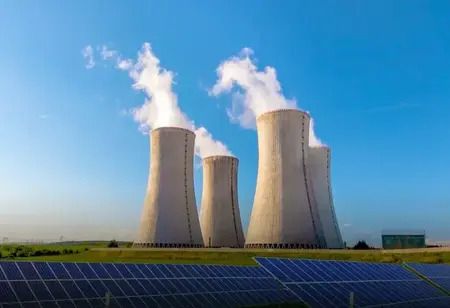
Apollo to Provide $ 6 Billion into UK nuclear project


U.S. asset management firm Apollo is poised to offer a £4.5 billion ($6 billion) loan to address a funding gap for the Hinkley Point nuclear project in the U.K. Apollo is set to deliver an investment-grade, unsecured debt financing arrangement for the initiative at an interest rate lower than 7 percent, as per reports.
This Apollo agreement would rank among the largest private capital contributions to a project deemed of national significance in the U.K.
The construction of two nuclear reactors at the Hinkley Point C location, which is the first nuclear facility to be established in Britain in several decades, has faced multiple delays and budget overruns.
State-owned China General Nuclear Power Corp (CGN) ceased its financial support for Hinkley Point C in late 2023 due to escalating tensions with the British government, which took control of CGN's stake in another nuclear endeavor in the U.K., Sizewell.
Consequently, EDF is now responsible for covering the expenses to finish the project, which is projected to exceed £40 billion by early 2024.
Also Read: India's UPI Launch in France Opens Gateway to Global Fintech Power
The initial reactor is anticipated to become operational in 2029. CGN's involvement had attracted public attention amid worries about broader Chinese influence in essential U.K. infrastructure.
Although nuclear initiatives remain contentious in Europe, the current British government has committed to authorizing the construction of additional such facilities domestically. Hinkley Point C is expected to supply electricity to approximately six million households upon completion.
Meanwhile, private markets are looking for chances to benefit from an anticipated surge in European infrastructure projects over the coming decade, spanning energy, transportation, housing, and data centers.
Also Read: How Tensions Grew Worse between Elon Musk and Donald Trump
Apollo Global Management President Jim Zelter mentioned earlier this month that he envisions the opportunity to invest $100 billion "in the ground" in Germany over the next ten years.